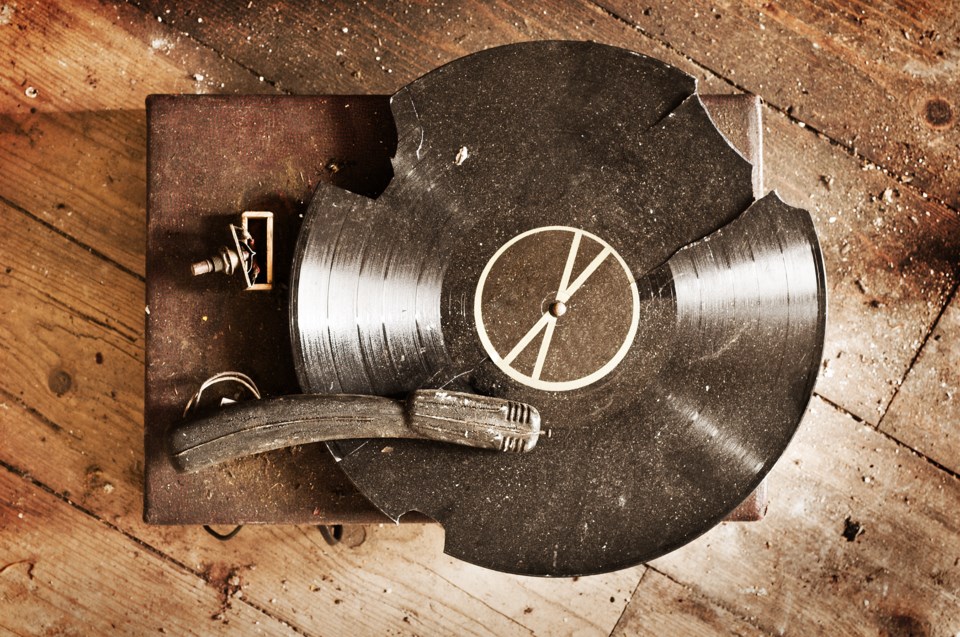The music industry has always been a bit of a mess, with labels stealing music and exploiting talent, “payola” determining who makes it and what songs get played on the radio, artists self-destructing on drugs and alcohol, and all kinds of other shady practices that make Wall Street excesses seem almost benign by comparison.
And then, as a Russian would say, it got worse.
The arrival of compressed digital music made it impossible for artists and labels to sell albums anymore, eventually locking them into a model where they can either have their work pirated on torrent sites or accept the measly $0.003 to $0.005 that Spotify pays out per stream. (Other services like Tidal pay about $0.013 per stream, but it’s still a pittance compared to the revenues and commissions the industry used to earn from record, tape and CD sales.)
A lot of bands are struggling to survive in this heavily compressed and lo-fi world unless they tour constantly, hawk T-shirts between songs, and keep raising their ticket prices. If you’re really lucky, your song will get picked for a car commercial.
One of my favourite prog-rock bands, ...And You Will Know Us by the Trail of Dead, chose to disband this past March after their label left them stranded in Europe and they had to crowdfund their way between venues. This tour was in support of a new album that was well-reviewed and definitely deserved better.
Another favourite, G. Love & Special Sauce, is still touring after 30 years, but it’s not the same. Twenty years ago the band was a seven-piece with a massive sound and stage presence and now it’s a talented trio—presumably because you don’t have to split the box office in as many ways. They deserve better, too.
On the other side of failure is runaway success, with a handful of artists like Taylor Swift making tens of millions from billions of streams while selling out massive tours where people will seemingly pay anything to get tickets.
Even then, T-Swizzle has had her downs. A few years ago, someone bought her entire early music library from her label, then resold it for as much as $450 million to a hedge fund. She doesn’t own a lot of her songs anymore. And now she seems to be the victim of ticketing shenanigans that are hurting her biggest fans.
Enter Ticketmaster, among the most hated companies in the world. Its hidden service and convenience fees have been bumping up the cost of live music, sports and other events for a long time, prompting hearings in the U.S. Congress, rebukes and investigations from our House of Commons, and even a CBC/Toronto Star investigation into its “secret” resale program. (Resellers who run bots that buy blocks of tickets faster than the public and immediately resell them for a profit on StubHub—which is owned by Ticketmaster—were advised by the company how to create multiple accounts to get around the theoretical ticket limit.)
Most recently, in response to the outcry from millions of Swift fans, the U.S. government now requires online services like Ticketmaster to include all fees upfront instead of burying them on the checkout page, but that’s it. It doesn’t come close to addressing the core problem of one company basically controlling the entire event industry.
Ticketmaster owns Live Nation, which owns House of Blues. As noted, it also owns StubHub, which means it earns convenience fees on a lot of tickets twice.
Of course, ticket resales (once referred to as “scalping”) is technically illegal in a lot of jurisdictions, but Ticketmaster/StubHub gets around that by calling it a ticket resale site, and governments in general have been cool with it. Ontario did try to impose a limit on how much you could jack up the price of a resale, but the Ford government bailed on that by claiming it was unenforceable.
And then it got worse. Not content to merely own ticketing and ticket resales, Ticketmaster is now busy signing exclusive contracts with venues so you can’t avoid paying its fees or bypass them by purchasing tickets at the box office. It is also signing deals with artists to ensure it has exclusive rights to sell their tickets, and in some cases it is not even producing those tours.
And, in another disturbing example of industry consolidation, Live Nation recently bought the Opera House, a popular live music spot in Toronto. That means you have to buy their tickets and pay their fees to see only the artists that want to work with them—as if the artists have a choice anymore.
You’d think government might step in at one point to break up this monopoly, but they don’t seem to want to touch it. I can see why. For countries dealing with war, climate change, natural disasters, homelessness, and all kinds of other more serious issues, an optional extra like buying tickets to see live events isn’t much of a priority. But there is a consumer protection angle here that would make it easy to chop off one of the hydra’s heads—ticket reselling.
There is no good reason for StubHub to exist. With the technology, people who can’t use their tickets should be able to easily resell them at cost to the next person on the waitlist. Ticketmaster could even charge $10 for the transaction and nobody would complain. But allowing people to resell at a profit has created a monster that is hurting music and sports fans.
The music industry, of all industries, should be cool. It’s not. Music is broken.




